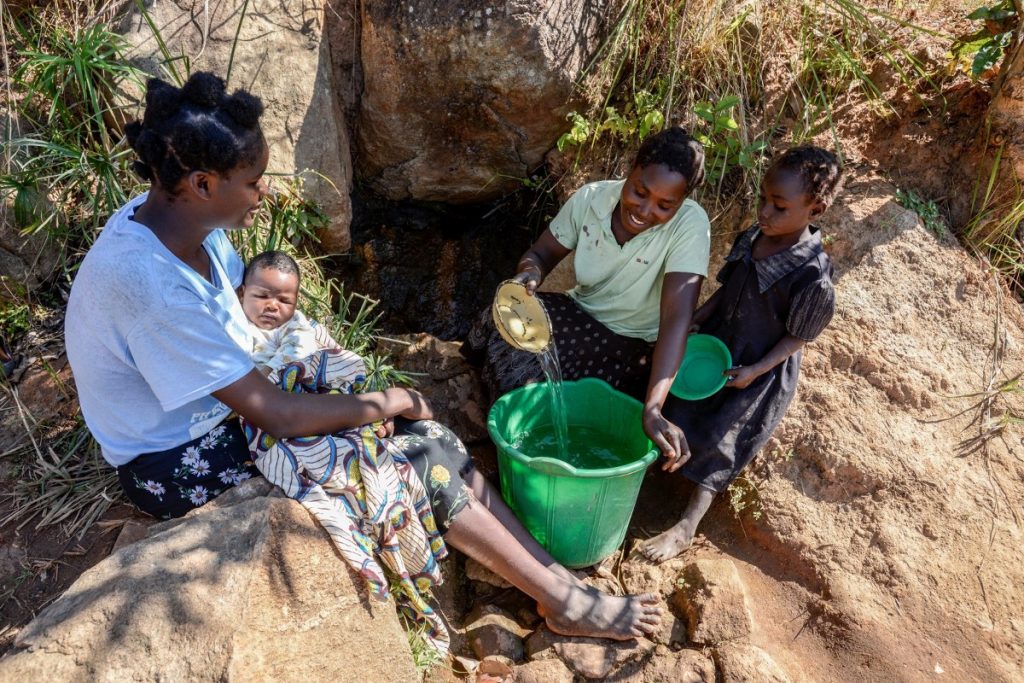Water versus fertiliser: Misplaced priorities?
While the water sub-sector has been suffering from a paltry investment, on one hand all the past political regimes have been hugely investing in fertiliser commodity through subsidised farm inputs programme dating back to 2005 and hitherto.
That mismatch in policy alone has ignited a water expert and National Water Development Programme manager Zachary Kasomekera to fault such thinking.

He said in a written interview: “The analysis of water availability in terms of rainfall on the Malawi GDP clearly shows that in those years with persistent dry spells, the GDP drops compared with normal rainfall years. In other words, water is the main driver of our economy, but somehow we seem to think fertiliser is the key driver. But simple logic is that if one had all the fertiliser but no water, nothing can grow, while with water something will grow even without fertiliser.”
Examination of available figures reveal that since 2005, government has spent about K525 billion on fertiliser subsidy but less than K300 billion towards the water sub-sector-a situation which both water and economic experts say has cost Capital Hill huge resources in form of spending on health-related bills.
Here is a trajectory: 2005 (K2.2 billion), 2006 (K5.5 billion), 2007 (K10.7 billion), 2008 (K19.4 billion), 2009 (K17.8 billion), 2010 (K19.7 billion), 2011 (K17.4 billion), 2012 (K40.6 billion), 2013 (K54.4 billion), 2014 (K59.7 billion), 2015 (K63.9 billion), 2016 (K31.4 billion), 2017 (K33.2 billion), 2018 (K41.5 billion), 2019 (K35.5 billion) and 2020 (K160.2 billion).
However, recent studies have shown that despite such colossal investments, the programme has to a larger extent failed to meaningfully reduce food insecurity let alone reducing high volatility of maize prices in the country.
If anything, evidence on the ground suggests that the programme has over the years benefitted the multinational agribusiness companies whose hybrid seed, and chemical fertiliser are paid for by the programme.
On one hand, between 2011 and 2015, investment in the Wash sector only averaged around $42 million (about K32 billion) million per annum and this is 45 percent more (or K19 billion) than was spent in the previous five years between 2005 and 2010, per annum, according to the SIP.
Government spending on water comprises expenditure at the central (via the line ministry, now Forestry and Natural Resources) and local levels (via district councils).
A further breakdown of government expenditures on water shows that between 2014 and 2019, spending was largely for the creation of new infrastructure, with development expenditure accounting for 81 percent (48 percent being spent at local level, compared to 33 percent at the central/ministry level). The spending pattern shifted substantially towards districts since the introduction of the Borehole Fund in 2017/18, according to a February 2020 Wash public expenditure review.
A latest edition of the Malawi Economic Monitor (MEM), a biannual publication by the World Bank (Malawi office), clearly indicates that the water supply and sanitation sector in Malawi largely rely on donor funding, especially for development projects.
It observes that the share of government-funded sector capital projects had declined by almost half from 16 percent in 2017/18 financial year to 7 percent in 2018/19.
Reads the document-launched virtually on December 15, 2020: “Malawi’s spending in the sector relative to total budget is lower than its regional comparators. Data from between 2016/17 and 2018/2019 show that the average spending for Malawi was 2.1 percent compared to 3.9 percent for Mozambique and about 3 percent for Tanzania.”
Commenting on the expenditure trend in the water sector, a specialist in water resource engineering John Mthandi, said in an interview:”Government should undertake a Wash specific public expenditure review to establish the efficiency and effectiveness of Wash expenditures. Unless deliberate action is taken to increase ORT [other Recurrent Transaction] budget to repair broken-down boreholes as well as water and sewer pipes, new development expenditures are less likely to result in quality and universal water supply and sanitation.”





